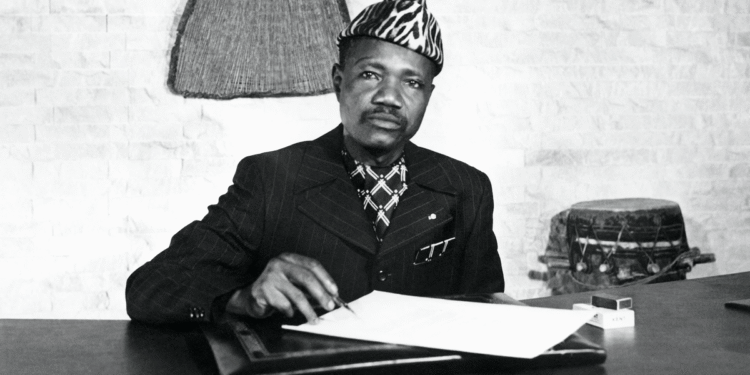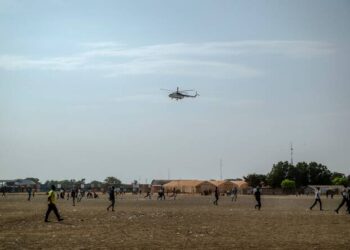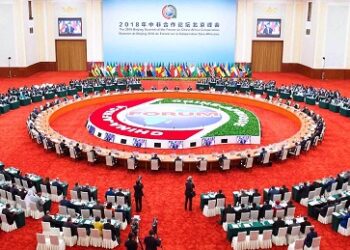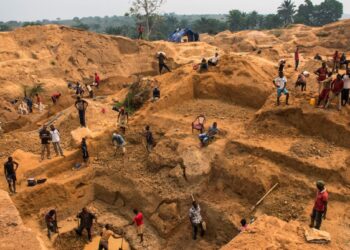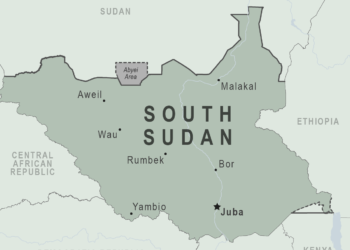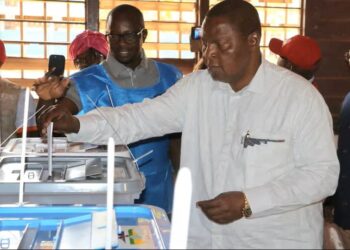François Tombalbaye, who later changed his name to Ngarta Tombalbaye, represents a pivotal and complex figure in Chad’s modern history. As the country’s first president after independence from France in 1960, he was tasked with building a nation from a highly diverse ethnic, religious, and geographic mosaic. However, his journey, which began with hopes of independence and unity, ended in a bloody coup after fifteen years of authoritarian rule, leaving behind a legacy of political and social divisions whose effects are still felt in Chad today.
François Tombalbaye was born in 1918 in the small village of Béssada in southern Chad, then part of French Equatorial Africa. He belonged to the Sara ethnic group, the largest ethnic group in the south, which, unlike the Muslim Saharan north, was predominantly Christian and pagan. This geographic, ethnic, and religious affiliation would later form the cornerstone of his political identity and orientation.
Tombalbaye, unlike most of his peers, had the opportunity to receive an education in French missionary schools, becoming a teacher. This profession gave him social standing and provided him with the opportunity to travel and gain insight into the conditions of the South, deepening his political and social awareness. In the 1940s, he became involved in union work, defending the rights of Chadian teachers and workers, which led him to the world of politics.
In 1947, he was among the founders of the Chadian Progressive Party (PPT), a local branch of the African Democratic Rally (RAD), the broader African political movement that called for decolonization. Tombalbaye quickly emerged as a powerful voice within the party, representing the interests of southerners who felt marginalized economically and politically by the French colonial administration, while at times favoring traditional elites in the north. His oratorical style and organizational ability saw him rise rapidly through the party ranks, becoming its leader in 1959.
When Chad gained independence on August 11, 1960, François Tombalbaye became its first president. From day one, he faced the enormous challenge of building a national identity for a country whose borders were not the product of natural historical development but rather of lines drawn on the map by the French colonialists. The nascent nation was sharply divided: the south, to which Tombalbaye belonged, was more developed in terms of education and infrastructure thanks to French investment and missionary missions, and its people dominated the administration and the army. In contrast, the north, the vast desert region with a Muslim majority, felt marginalized and isolated and viewed the new southern-dominated government with suspicion.
Tombalbaye initially attempted to adopt a unity rhetoric, but his actual policies soon revealed a clear bias toward his region. He appointed a large number of southerners to key government positions while marginalizing many northern leaders. His economic policies also focused on developing the South, particularly cotton cultivation, which was the main source of income, deepening the sense of injustice among northerners.
Tombalbaye did not tolerate any political opposition. Shortly after independence, he banned all political parties except his own, the Chadian Progressive Party (PPT), declaring a one-party system in 1962. He justified this move by citing the need to preserve national unity and prevent tribal and political divisions, but in reality, it was a means of consolidating his absolute power and eliminating any competing voices. Many political opponents, both from the north and even from the south, who criticized his style of governance were arrested and imprisoned.
By the mid-1960s, discontent in the north had escalated into armed rebellion. In 1966, the National Liberation Front of Chad (FROLINAT) was founded, an umbrella rebel movement bringing together various groups from the north and east, with the aim of overthrowing Tombalbaye’s regime. The FROLINAT accused his government of corruption, nepotism, repression of Muslims, and excessive subservience to France.
Tombalbaye found himself embroiled in a protracted civil war. He was forced to rely heavily on French military support to suppress the rebellion, with French forces repeatedly intervening to save his regime from collapse. This reliance on the former colonial power weakened his legitimacy in the eyes of many Chadians and portrayed him as a leader who could not remain in power without external protection.
In an attempt to address the cultural and political crisis and assert a Chadian identity independent of Western influence, Tombalbaye launched the “Authenticity” campaign in the early 1970s. This campaign included a series of radical measures, such as changing his name from François to “Ngarta” (the true leader) and forcing all citizens and officials with Christian or French names to replace them with traditional African names. Also, all southern men holding positions in the administration or the military were required to undergo the Yondo Ritual, a rigorous traditional initiation rite specific to the Sara ethnic group. Many, especially Christians and southern intellectuals, viewed this measure as an insult and a forced practice of rituals they did not believe in, alienating even his traditional political base. Local cultures and languages were also promoted at the expense of French and Western culture.
Although the campaign’s stated goal was to strengthen national identity, it backfired. Instead of uniting the country, it deepened divisions. Muslims in the north viewed it as further evidence of the dominance of the southern Sara culture, while many southerners viewed it as tribal domination by the president.
By the early 1970s, Tombalbaye’s regime was reeling under the weight of an ongoing civil war, a stifling economic crisis exacerbated by a severe drought in the Sahel, and growing popular discontent with his repressive and unpredictable policies, and he lost the trust of even his closest allies in the army and administration.
Constantly fearful of plots, he carried out sweeping purges within the army, arresting and executing several prominent officers, creating a climate of fear and apprehension within the military establishment. This move proved to be the final straw.
On April 13, 1975, army and gendarmerie units moved into the capital, N’Djamena, and attacked the presidential palace. Ngarta Tombalbaye was killed in the attack, bringing an end to his fifteen-year rule. The army announced the formation of a Supreme Military Council led by General Félix Malloum Ngakoutou Bey-Ndi, a southern officer Tombalbaye had previously imprisoned.















































